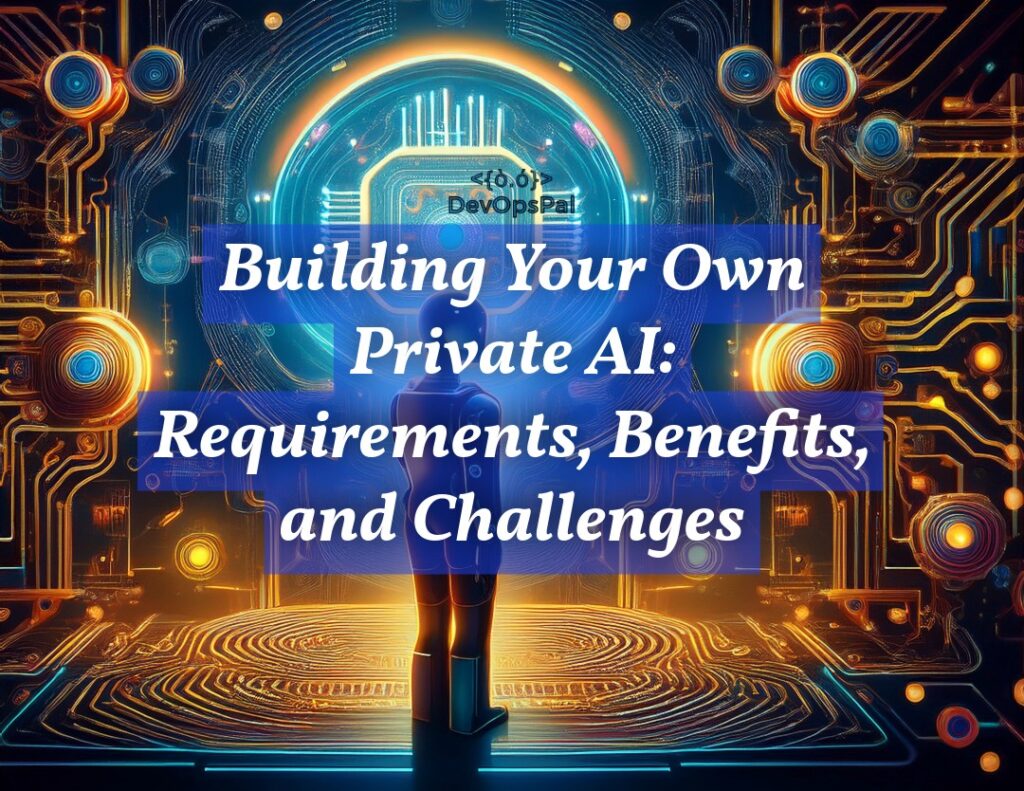In today’s data-driven world, artificial intelligence has become a cornerstone of innovation across industries. However, as concerns about data privacy and security grow, many organizations are exploring alternatives to public AI services. Private AI offers a compelling solution, providing the benefits of artificial intelligence while maintaining control over sensitive information. This comprehensive guide explores what private AI is, how to build your own system, and the advantages it offers.
What is Private AI?
Private AI refers to artificial intelligence systems that are designed and deployed within a controlled environment, typically on-premises or in a private cloud. Unlike public AI services that process data on external servers, private AI ensures that sensitive information remains within your organization’s boundaries, offering enhanced security and compliance.
These systems can perform the same functions as their public counterparts—natural language processing, computer vision, predictive analytics—while providing greater control over how data is handled and processed.
Building Your Own Private AI System
Creating a private AI solution is entirely feasible with the right resources and expertise. Here’s what you’ll need:
Infrastructure Requirements
The foundation of any private AI system is robust infrastructure:
- Computing Power: High-performance servers equipped with GPUs or TPUs are essential for training and running sophisticated AI models
- Storage Solutions: Sufficient storage capacity for datasets, model checkpoints, and results
- Networking: Secure, high-speed networking infrastructure for efficient data transfer
Data Considerations
Data is the lifeblood of any AI system:
- Quality Datasets: Comprehensive, clean, and relevant data for training your models
- Privacy Compliance: Mechanisms to ensure data handling complies with regulations like GDPR or HIPAA
- Data Management: Systems for collecting, storing, and preprocessing information efficiently
Technical Components
The technical stack for private AI includes:
- AI Frameworks: TensorFlow, PyTorch, or similar tools for building and training models
- Deployment Tools: Containerization solutions like Docker and orchestration platforms like Kubernetes
- Security Measures: Encryption, access controls, and monitoring systems
Expertise Required
Building private AI demands specialized knowledge:
- Data Scientists: For designing and training effective models
- ML Engineers: For implementing and optimizing AI systems
- Security Specialists: To ensure proper protection of data and infrastructure
- Domain Experts: To provide context and ensure AI solutions address specific business needs
Benefits of Private AI
Implementing private AI offers numerous advantages:
Enhanced Data Security
With private AI, sensitive information never leaves your controlled environment, significantly reducing the risk of data breaches or unauthorized access. This is particularly valuable for organizations handling confidential customer information, proprietary business data, or regulated information.
Complete Control
Private AI gives you full authority over:
- How data is processed and stored
- Which algorithms and models are used
- When and how systems are updated or modified
Customization Opportunities
Unlike one-size-fits-all public solutions, private AI can be tailored to your specific:
- Industry requirements
- Business processes
- User needs
- Performance priorities
Regulatory Compliance
For organizations in regulated industries, private AI simplifies compliance with:
- Data protection laws
- Industry-specific regulations
- Regional requirements
- Internal governance policies
Long-term Cost Efficiency
While initial investment is higher, private AI can prove more economical over time through:
- Elimination of ongoing subscription fees
- Reduced data transfer costs
- Optimization for specific use cases
- Scalability aligned with business needs
Performance Advantages
On-premises deployment can deliver:
- Lower latency for real-time applications
- Consistent performance regardless of internet connectivity
- Optimized resource allocation
- Reduced bottlenecks
Challenges to Consider
Despite its benefits, private AI comes with certain challenges:
Resource Investment
Building private AI requires significant:
- Upfront capital expenditure
- Ongoing maintenance costs
- Technical expertise
- Time for implementation
Technical Complexity
Managing private AI involves:
- Keeping up with rapidly evolving AI technologies
- Troubleshooting complex systems
- Ensuring proper integration with existing infrastructure
- Maintaining security against evolving threats
Scaling Considerations
As your needs grow, you’ll need to address:
- Hardware expansion
- Model optimization
- Increased data management requirements
- Additional security measures
Is Private AI Right for Your Organization?
Private AI is particularly valuable for:
- Healthcare providers handling sensitive patient data
- Financial institutions processing confidential transaction information
- Government agencies working with classified or sensitive public data
- Enterprises with strict data sovereignty requirements
- Organizations with unique AI needs not met by public solutions
Getting Started with Private AI
If you’re considering implementing private AI, start with these steps:
- Assess your needs: Identify specific use cases and requirements
- Evaluate resources: Determine available budget, expertise, and infrastructure
- Start small: Begin with a pilot project to demonstrate value
- Build incrementally: Expand your private AI capabilities based on success and lessons learned
- Stay informed: Keep up with advances in AI technologies and privacy regulations
Conclusion
Private AI represents a powerful approach to leveraging artificial intelligence while maintaining control over sensitive data. Though building such systems requires significant investment in infrastructure, expertise, and ongoing maintenance, the benefits—enhanced security, customization, compliance, and potential long-term cost savings—make it an attractive option for many organizations.
As AI continues to transform industries, private implementations offer a path to innovation that aligns with privacy priorities and specific business needs. By understanding the requirements and benefits, you can make informed decisions about whether private AI is the right choice for your organization’s future.
Disclaimer: This article is provided for informational purposes only and does not constitute professional advice. The implementation of private AI systems involves complex technical, legal, and business considerations. Organizations should consult with qualified IT, security, and legal professionals before undertaking such projects. The author and publisher are not responsible for any actions taken based on the information provided in this article.
